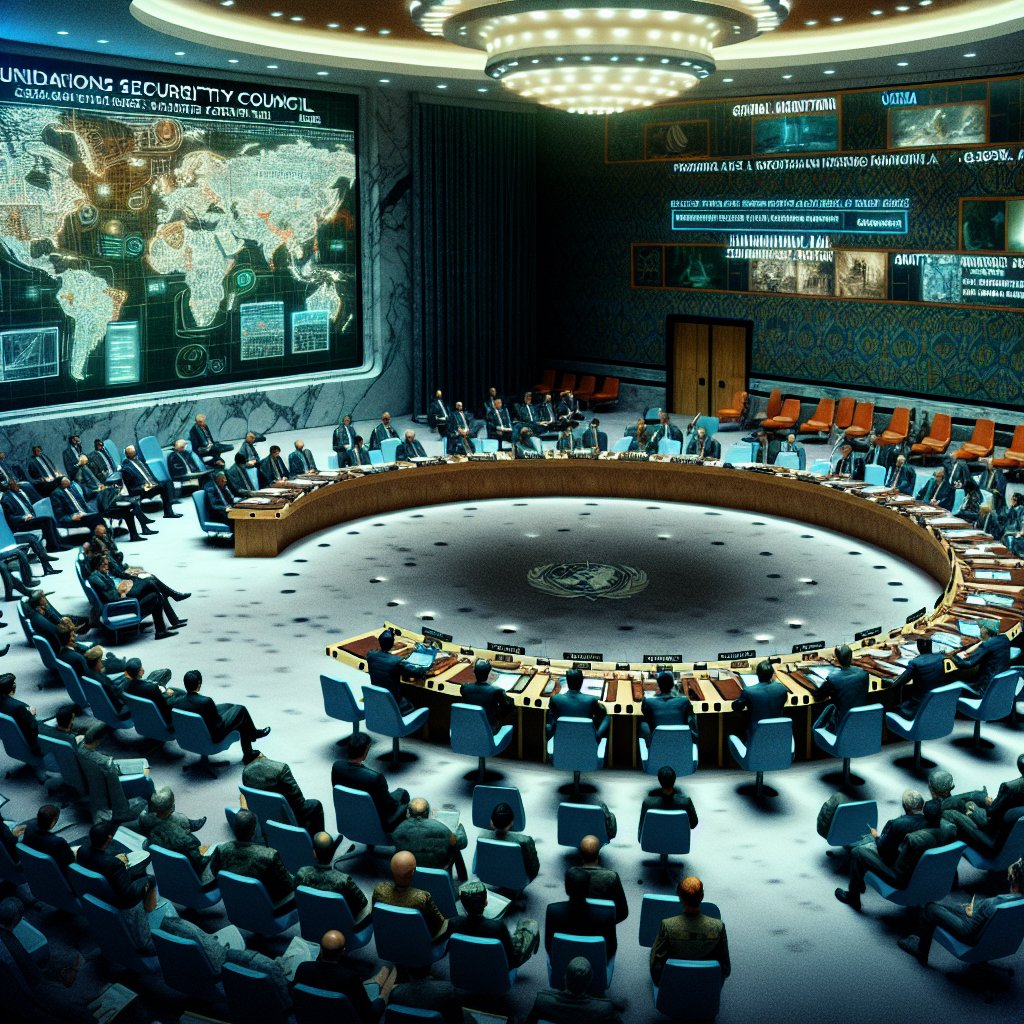Image created by AI
UN Security Council Stalemate: US Draft on Gaza Ceasefire Vetoed by Russia and China
The United Nations Security Council (UNSC) faced a deadlock when Russia and China vetoed a US-authored resolution calling for an “immediate and sustained ceasefire” in Gaza. This veto has significant implications for the troubled region and reveals deep-seated geopolitical rifts among world powers.
Eleven members voted in favor of the resolution, but with three, including an Arab nation, opposing, and one abstention, the anticipated ceasefire remains unattainable. The US, evidently frustrated by the outcome, rebuked Russia and China for refusing to condemn the violent acts perpetrated by Hamas against civilians.
Linda Thomas-Greenfield, US Ambassador to the UN, condemned Russia and China's actions, accusing them of prioritizing their rivalry with the US over the Council's success and the dire humanitarian needs in Gaza. Her statements underscore the perceived pettiness and cynical politics at play, obstructing international consensus on a humanitarian crisis.
In contrast, Vasily Nebenzia, the Russian Ambassador to the UN, criticized the US for its previous vetoes of ceasefire demands and questioned the timing of its recognition of the need for a ceasefire, suggesting the US had previously hindered progress in favor of Israel's "counterterrorism efforts."
China, stepping into the fray through its Ambassador Zhang Jun, articulated dissatisfaction with the draft's ambiguity and failure to emphasize an immediate ceasefire, calling the final text a deviation from both council consensus and international expectation.
Amidst this troubling geopolitical tussle, the Arab Group, represented by Algerian Ambassador Amar Bendjama, highlighted the real consequences of the Council's inaction, citing the tragic loss of life in Gaza, including over 32,000 fatalities, many of whom are women and children. Algeria's rejection of the proposed draft stemmed from its failure to convey a peace message and to prevent further casualties.
As tensions simmer in the UNSC, a new resolution backed by several non-permanent members, including Mozambique and Algeria, is on the table. It calls for an immediate ceasefire during Ramadan, extending to a lasting and sustainable truce and emphasizes expanding humanitarian assistance. However, with the precedent of political veto power, the success of this new draft is uncertain at best.
The ongoing impasse at the UNSC underscores a wider struggle to balance geopolitical interests with the urgent need for humanitarian action and peace maintenance, particularly in the crisis-ridden Middle East.










